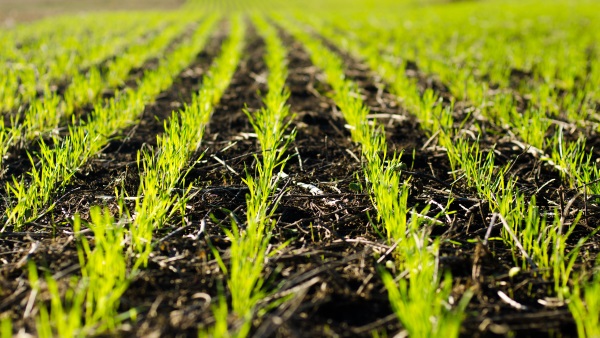It is often said that “logistics trumps agronomy.” Faced with one of the shortest growing seasons in the world, nowhere is this truer than in Western Canada. This reality is not a result of individuals looking for shortcuts. It flows from the fact that in environments like ours the most critical consideration is getting the crop in, up and harvested in the most efficient manner possible.
When focused specifically on crop nutrition, factors like cost per acre, acres per drill fill, seed bed utilization, flowability and how a product handles are as important as the pounds of nutrients to be applied. We find ourselves constantly striving to balance the anticipated agronomic need with the very real, logistical constraints of operational efficiency. Often by the time we’ve sorted how to most effectively apply rates of our N, P, K and S there’s little capacity or flexibility to do much else.
This reality is becoming more and more pressing as we begin to take a closer look at nutrient removal as a function of yield. Year over year our yields have incrementally increased. Along with the increase in production has come an increase in nutrient removal. Unfortunately, in many situations, our ability to deliver nutrients efficiently has not kept up with nutrient removal for most of the crops grown. We are often quicker to recognize this problem when considering macronutrients. The impact of under-programmed N, P, K or S are more readily observed. A subtle and annual shortfall in micronutrient nutrition and the subsequent unsustainable removal of micronutrients goes unnoticed. Consequently, as yield potential increases, we need to be paying more attention to micronutrients like zinc, manganese, copper and boron.
Considering micronutrient uptake and removal over the cropping system is an important step in understanding your crop’s needs. If we understand more, we can begin to anticipate micronutrient need by crop and yield on an annual basis. Then we can begin to take steps that proactively seek to supply these essential nutrients.

The management of micronutrients has been particularly problematic. Although it is not uncommon to see symptoms of micronutrient deficiency in portions of fields and specific geographies, our ability to address those micronutrients has been limited to responding with a foliar application or addressing the concern in future years using granular micronutrients.
Foliar nutrition continues to play an important role in our fertility programs. Responding to a micronutrient deficiency either observed in the field or identified by a tissue test may not allow us to overcome the lost yield potential. The yield potential is already lost from the deficiency already experienced to this point.
Responding with a granular soil-applied micronutrient in subsequent years is a more proactive approach but uptake in the year of application is often impacted by soil attributes and product distribution. This results in the likelihood that a crop response could be significantly compromised. In short, with traditional granular micronutrients we often fail to deliver them to every plant in a field.
Enter YaraVita® PROCOTE®
YaraVita PROCOTE allows for the proactive management of micronutrient nutrition. The inefficiency normally seen with granular is overcome with YaraVita PROCOTE and farmers can pre-emptively address the timing concern associated with foliar nutrition in situations where we have known deficiencies.
YaraVita PROCOTE is an oil-based liquid micronutrient product that when applied by the fertilizer dealers, coats every granule in the dry blend. This process allows farms to leverage their entire dry N, P, K and S as the platform to deliver micronutrients. When it comes to soil-applied micronutrients, current year of application uptake is a function of nutrient distribution. With YaraVita PROCOTE every granule becomes a feeding site for micronutrients.
In short, YaraVita PROCOTE delivers complete nutrition that includes micronutrients with minimal complexity allowing farms to focus on logistics without compromising agronomy.

To learn more visit: Yara Canada/.










